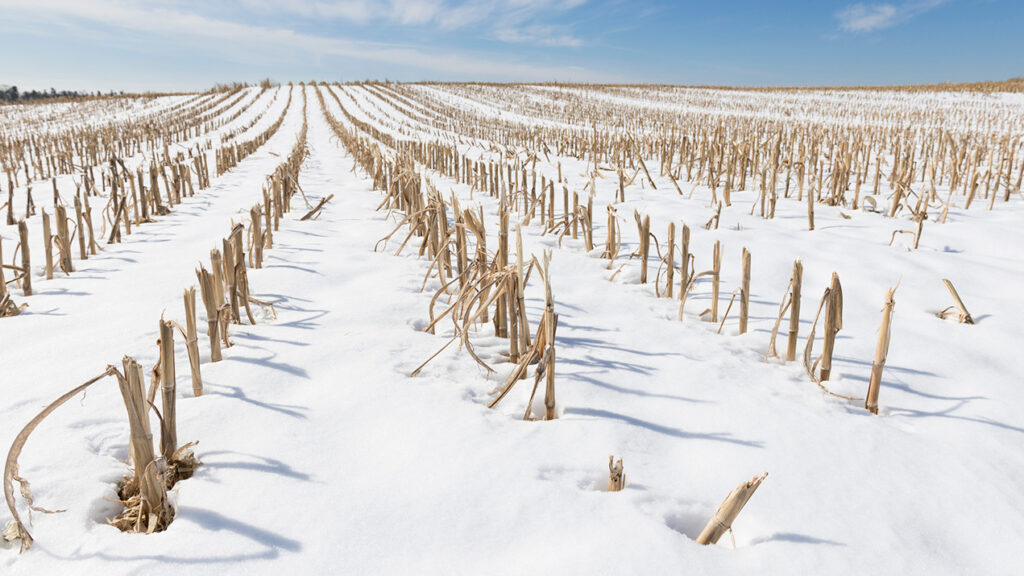Impact of winter weather on soil health

Last month, we spoke about some of the work farmers do in the fall before winter. Aside from harvest, many farmers will also prepare their fields before the winter weather sets in. These crucial steps help ensure their fields and soil remain healthy and productive in the spring before the grains are planted.
But how impactful is the winter weather to soil health?
Winter is not just a dormant season for crops—it’s also a crucial time for soil. While fields may appear quiet under frost or snow, what happens to the soil during these months can greatly affect the success of the next growing season. For farmers, maintaining soil health during winter is essential to ensuring long-term productivity and sustainability. Let’s explore how winter impacts the soil.
How winter affects soil
Ontario’s winter weather can be variable – we get cold, snowy conditions, or periods of warm, rainy weather, with sunshine spread throughout. All of this contributes to the success (or challenge) of growing Ontario grains, and the health of Ontario’s soils.
- Temperature fluctuations
During winter, the soil is exposed to freezing and thawing cycles. These natural processes can break up compacted soil, creating a crumbly texture ideal for planting. However, repeated freezing and thawing may be damaging to winter wheat planted crops. Repeated periods of extreme freezing and thawing can cause frost heaving – or for the soil to push the frost out of the ground. In these cases, the vulnerable winter wheat plants can be pushed out of the protected soil and into the weather conditions. - Moisture retention and loss
Snow and rainfall in winter can saturate the soil, providing essential moisture for spring. However, excessive water from snowmelt may lead to erosion or waterlogging in fields without proper drainage. Frozen ground can also prevent water from seeping in, causing surface runoff. - Risk of compaction
Wet or frozen soils are particularly vulnerable to compaction, especially if heavy machinery is used during this time. Compacted soil has less pore space for air and water, making it harder for plant roots to grow and absorb nutrients. - Depletion of organic matter
Without active plant growth, the soil’s organic matter can slowly degrade. Organic matter is essential for soil fertility, as it improves nutrient retention, enhances water-holding capacity, and provides food for beneficial microorganisms.
In case you missed it, here are some steps that farmers take to prepare their fields for winter – which can help mitigate any soil health issues during the cold months. They will test their soils to gain an understanding on the health and nutrient availability. Some farmers will plant cover crops- to provide a erosion control cover as well as organic matter to the soil.
Why soil health in winter matters
Taking care of soil during winter isn’t just about preparing for spring—it’s about ensuring the long-term sustainability of the land. Healthy soil provides:
- Better water management: Well-maintained soil retains moisture efficiently and reduces the risk of flooding or drought stress during planting.
- Nutrient cycling: Organic matter and microorganisms in healthy soil break down nutrients, making them available to plants.
- Erosion control: Practices like cover cropping protect the soil from being carried away by wind or water.
- Stronger crop yields: Investing in soil health during winter pays off with more resilient, productive crops in the growing season. More productive crops = more grains that are available to make food, fuel or other everyday items.



